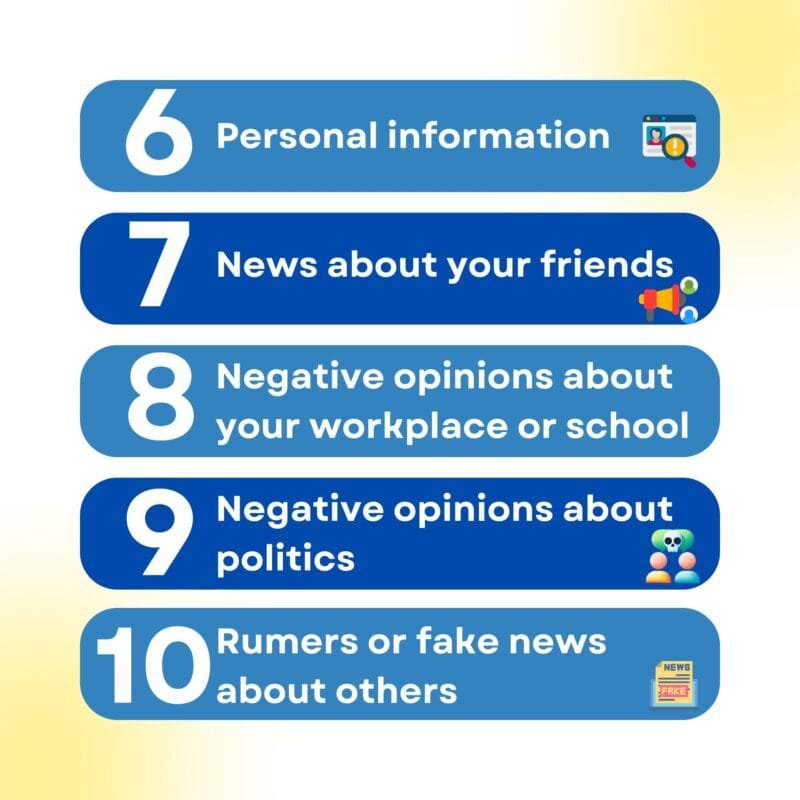
Currently, social media plays a significant role in people’s lives, to the extent that it has become another essential factor in daily life. Everywhere you look, you see people engrossed in their phones, whether they are children or adults. Everyone has their own social media platforms and enjoys using them.
But did you know that the information we input can be easily disseminated with just one click by a user? While social media offers many benefits, if we use it carelessly, it can also lead to various problems.
Today, we would like to introduce safe and appropriate ways to use social media by providing 10 recommendations for information that should not be posted, as follows.

- Screenshots of private conversations – Private conversations, as the name implies, are meant to be kept confidential. They may contain sensitive content that could affect the people involved or yourself in the future.
- Tagging your location – While it might seem like a good memory to tag the places you’ve visited, it could lead to trouble if someone with bad intentions knows your whereabouts. They could exploit this to break into your home while you’re away or harass you at those locations without your consent.
- Schedules of your next trip – Although sharing your schedule broadly might seem harmless, it still opens a vulnerability. If you want to inform someone about your whereabouts, it’s better to share it with a trusted person in a private chat.
- Photos of your credit card – It’s well known that showing your credit card or other financial cards is a big no-no. Even just the card number and expiry date are enough for malicious individuals to perform online transactions.
- Financial information – Displaying your account balance might not seem like revealing much, but the account number and the balance shown can be enough for hackers to impersonate you and access your account. Additionally, it could attract people looking to borrow money from you.

- Personal information – Personal information is crucial and should never be disclosed publicly. Many cases have shown that once personal information is shared, it’s easily misused by others for malicious purposes.
- News about your friends – Even if the information is not about you, sharing someone else’s news without permission is inappropriate, no matter how trivial it seems.
- Negative opinions about your workplace or school – If you think posting negative comments or complaints about your workplace on social media is a safe way to vent, think again. Regardless of how few friends you have on your social media, there’s always a chance someone could spread it, potentially costing you your job.
- Negative opinions about politics – Avoid posting political opinions unless you have solid evidence. You might face backlash from others and risk violating the Computer Crime Act by spreading false information.
- Rumors or fake news about others – This can lead to severe consequences, including people committing suicide because they can’t handle the criticism and judgment from others based on just a few posts. Remember, posting is easy, but erasing the memory of what people have seen is hard. Reckless posts can ruin lives.
Even though some of the points mentioned might seem trivial and some might change over time or according to preferences, being cautious about posting things that shouldn’t be shared can help avoid problems for ourselves and others when using social media in the future.
If you want your business to reach online customers, create sustainable marketing results, we are happy to provide advice on how to make your business more recognizable. Contact us at 093 696 4498, Email: mongkontep@pkindev.com, Website: www.pkindev.com, Line OA: https://lin.ee/po8XduU
Phuket Innovative Development Co., Ltd. has been certified with ISO/IEC29110 standards and has received numerous awards.
Source: tumwai.com
